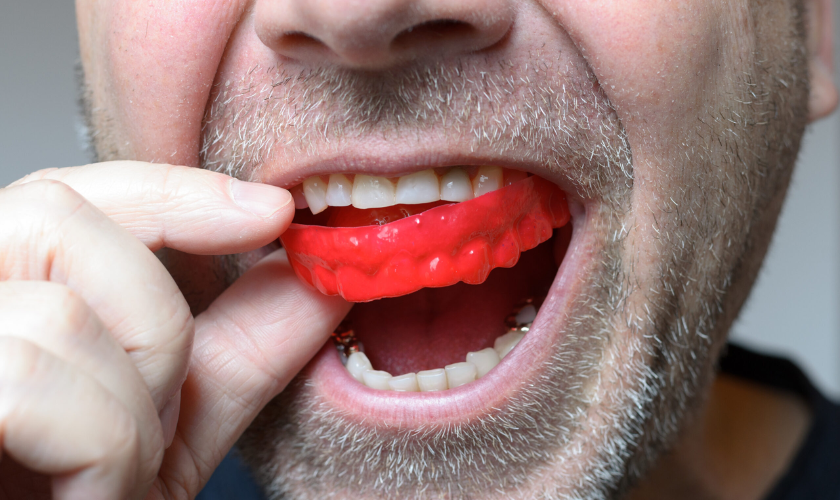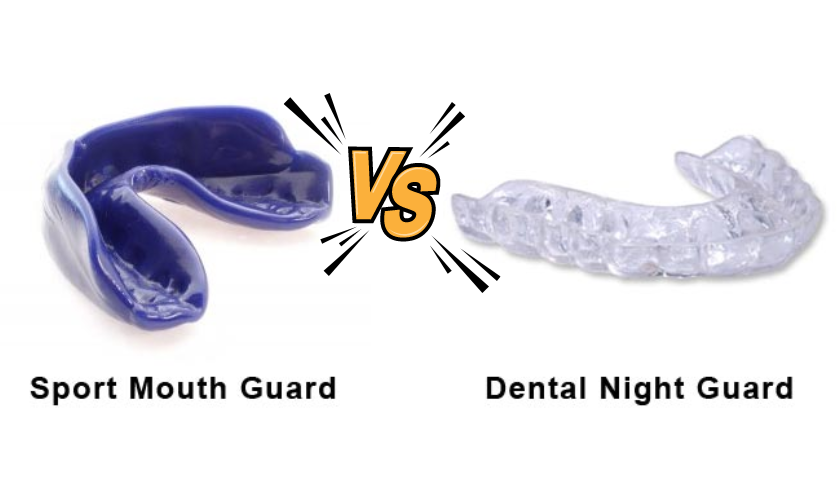Pay Online
5 Tips to Choose the Right Night Guard for Your Needs

Do you often wake up with jaw pain, headaches, or worn-down teeth? If so, you might be grinding your teeth at night, a condition known as bruxism. The solution? A night guard. But with so many options available, how do you choose the right one for your needs? Fear not! In this comprehensive guide, we’ll walk you through five expert tips to help you select the perfect night guard to safeguard your smile.
Understanding the Importance of Nightguards
Night guards, also known as dental guards or occlusal guards, are custom-made or over-the-counter devices. They’re designed to protect your teeth from the harmful effects of bruxism. They are typically worn during sleep to prevent the teeth from grinding against each other and causing damage.
The Importance of Night Guards
Preventing Tooth Damage: One of the primary reasons for using a night guard is to prevent damage to the teeth caused by grinding or clenching. Over time, bruxism can wear down the enamel, leading to tooth sensitivity, fractures, and even tooth loss. Night guards create a barrier between the upper and lower teeth, reducing the impact of grinding and protecting the tooth surfaces.
Alleviating Jaw Pain and Tension: Bruxism often results in muscle tension and jaw pain, commonly known as temporomandibular joint (TMJ) disorder. Night guards help to alleviate these symptoms by promoting proper jaw alignment and reducing the strain on the muscles and joints.
Preventing Headaches: The muscle tension and strain associated with bruxism can also lead to frequent headaches, particularly upon waking. By preventing teeth grinding, night guards can help reduce the frequency and severity of these headaches, allowing for more restful sleep.
Improving Sleep Quality: Bruxism can disrupt sleep patterns, leading to restless nights and daytime fatigue. Night guards help to minimize teeth grinding, allowing for deeper and more restorative sleep. By promoting better sleep quality, night guards contribute to overall health and well-being.
Top Tips to Choose the Right Night Guard
Tip #1: Understand the Types of Night Guards
Night guards come in various types, each designed to address specific dental concerns. The three main types include:
- Stock Night Guards: These pre-made guards are inexpensive and available over the counter. However, they often need to provide a better fit and minimal protection.
- Boil and Bite Night Guards: These guards offer a better fit than stock guards as they mold to your teeth after boiling in water. They are also available over the counter but may offer less customization.
- Custom-Fit Night Guards: Fabricated by dental professionals, custom-fit guards provide the most precise fit and optimal protection. While they are pricier than over-the-counter options, they offer superior comfort and durability.
Tip #2: Consider Your Comfort
Comfort is key when selecting a night guard, as you’ll be wearing it for several hours each night. Pay attention to factors such as material, thickness, and fit:
- Material: Night guards are typically made from either soft or hard materials. Soft guards, often made of silicone, offer flexibility and cushioning. However, they may wear down faster. Hard guards, usually made of acrylic, provide durability but may feel bulkier.
- Thickness: The thickness of the guard can impact comfort and effectiveness. Thicker guards offer more protection against teeth grinding but may feel bulky in the mouth. Thinner guards, while less noticeable, may provide less protection.
- Fit: A proper fit is crucial for comfort and effectiveness. Custom-fit guards offer the best fit but boil, and bite guards can also provide a snug fit with proper molding.
Tip #3:Assess the Severity of Your Bruxism
The severity of your teeth grinding will influence the type of night guard you need. If you have mild to moderate bruxism, an over-the-counter option like a boil and bite guard may suffice. However, if you experience severe grinding or have additional dental issues, such as TMJ disorder, a custom-fit guard prescribed by your dentist Greeley is recommended for optimal protection and comfort.
Tip #4: Consider Durability and Maintenance
When investing in a night guard, consider its durability and maintenance requirements. Custom-fit guards tend to be more durable than over-the-counter options and may last several years with proper care. Follow the manufacturer’s instructions for cleaning and storing your night guard to ensure longevity and hygiene.
Tip #5: Consult Your Dentist
Finally, consult your dentist before purchasing a night guard, especially if you’re unsure about the severity of your bruxism or if you have other dental concerns. Your dentist can assess your condition and recommend the most suitable type of night guard for your specific needs.
Choosing the right night guard is essential for protecting your teeth and alleviating symptoms associated with bruxism. By understanding the different types of night guards and considering your comfort preferences, you can make an informed decision that ensures a comfortable fit and optimal protection. Safeguard your smile and enjoy restful nights with the perfect night guard tailored to your needs.



